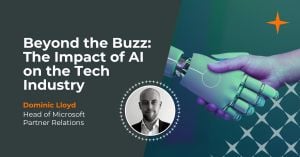With technology rapidly transforming the education sector, the emergence of artificial intelligence (AI) is reshaping the future of coding education. AI tools, such as coding companions and personalized learning platforms, are stepping up to streamline how programming is taught and learned. This shift isn't just about efficiency; it's also about making coding more accessible, engaging, and relevant for the next generation of developers.
One notable innovation is 'Tab Tab Tab,' an AI-driven code companion that's changing the game for developers. Designed to assist with code management and writing, it offers features like advanced auto-completion, real-time error detection, and contextual suggestions based on the current project being worked on. Rather than traditional coding practices, which can be tedious and prone to error, 'Tab Tab Tab' allows developers to generate and correct code snippets with just the touch of the tab key.
Many of today's job seekers are finding themselves bewildered by the current workforce climate. A significant hurdle for the new generation is entering the job market, especially for Gen Zers striving to break through. Reports indicate companies, especially within tech and finance, are hiring fewer interns, resulting in fierce competition for entry-level positions. This dynamic is prompting young professionals to take matters at their own pace, often turning to self-directed learning opportunities, including free online courses, to build their skills and advance their careers.
Vedant Hamirwasia, Director of ODA Class, remarks on the remarkable growth of educational technology (Edtech) platforms, stating, “The digital transformation across the country is fueling the growth of the Edtech sector. With the rising internet penetration, even students from remote areas can connect to digital learning.” This transformation highlights how AI is making education more flexible and equitable, allowing students to learn anytime, anywhere, through their smartphones.
AI's impact on education extends beyond coding, as personalized and adaptive learning becomes more prevalent. Regarding how AI adjusts to individual student needs, Hamirwasia notes continual support systems powered by AI-driven intelligent tutoring systems. These platforms offer real-time feedback and personalized encouragement to keep students motivated and on track, removing the barriers presented by traditional learning environments.
One of the most significant shifts within educational institutions involves blending online and traditional instruction. Hybrid learning models are now commonplace; they seamlessly integrate Edtech tools to create interactive and engaging curricula. According to Hamirwasia, “Schools and colleges are recognizing the necessity of adapting to technological advancements, and this trend is paving the way for future educational methodologies and practices.”
The evolution of AI tools such as 'Tab Tab Tab' also inspires educational institutions to leverage these technologies to their advantage. Through practical exposure to innovative programming tools, students can develop their skills effectively and prepare themselves for the demands of the job market. While coding tools provide significant benefits, institutions must provide additional support for low-income families who may struggle with access to technology and the Internet. Partnerships among Edtech companies, government entities, and non-profits can tackle these disparities, offering affordable or subsidized devices and Internet access to underserved communities.
For coding education, 'Tab Tab Tab' presents numerous practical applications. Startups and small development teams can overcome resource constraints by employing this tool to accelerate their development cycles, enabling quicker product launches. Large enterprises benefit as well; larger teams can collaborate more efficiently, maintaining code consistency throughout projects, which is invaluable for teams spread across various regions.
Despite these advancements, challenges remain. Companies face pressure to recruit talent skilled enough to adapt to and utilize AI tools effectively. This has led to calls for education and training models to shift, focusing on developing new competencies aligned with the changing demands of the industry. The increased reliance on AI coding assistants suggests the need for developers who can understand and leverage these tools to address more complex problems.
Just as pivotal as the opportunities AI presents are the ethical and practical challenges it introduces. Concerns about data privacy and biases embedded in AI-generated code are prompting stakeholders to prioritize responsible use. Implementing checks and balances on AI development ensures equitable access and proper oversight as the field continues to evolve.
Education as we know it is undergoing significant changes, thanks to the proliferation of AI technology. With coding education at the forefront, tools like 'Tab Tab Tab' stand to make learning to code not only easier but also more impactful. This new phase is leading to promising prospects for educators and students alike. It is clear: the future is being coded right now, one tab at a time.



